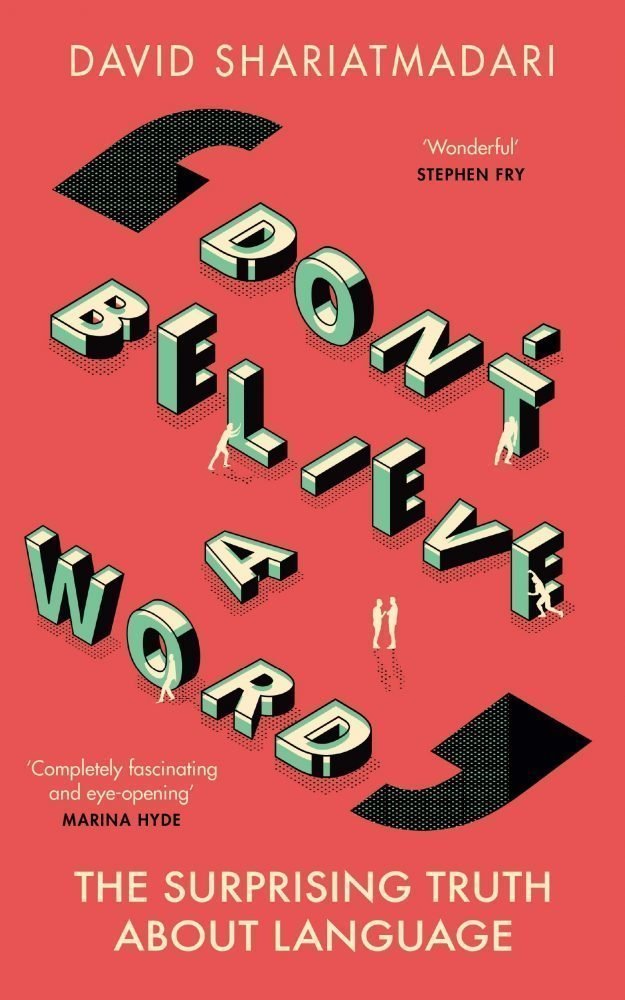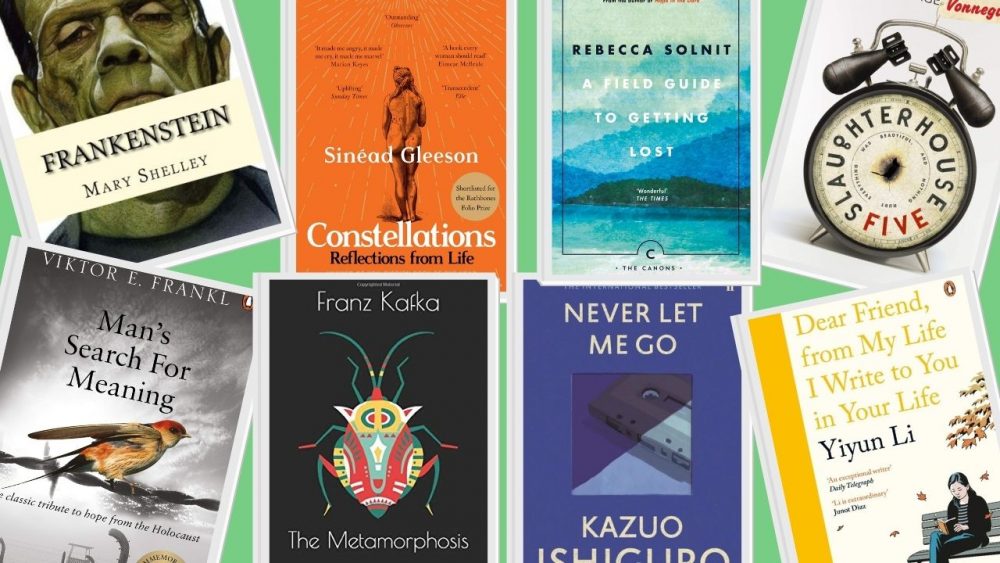The best history books are ones which manage to captivate the reader, either through their subject matter or their presentation. Many of the best history books present us with an almost novel-like narrative that envelops us and hits us with revelations, reminiscent of those found in a drama or a thriller.
Others are simply so engrossing and captivating in their subject matter, whether that be broad or specific, that we find ourselves unable to close the book. You’ll find both kinds here. This is a selection of history books that are both incredibly well-researched and written with a moreish, absorbing quality.
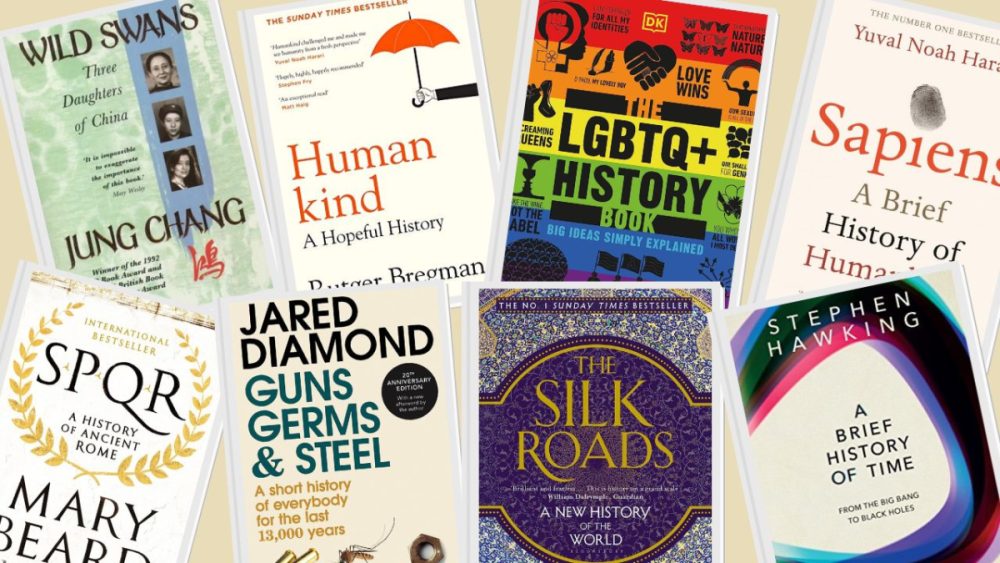
The Best History Books Ever Written
These history books have also been selected for their breadth of subject matter. Here you’ll find some of the most popular and celebrated history books of the past several decades, and among them some more specific, obscure, and remarkable history books.
These are books on world history, empire, the histories of specific peoples and nations and cultures, as well as history books that focus on intriguing moments in time. All of these are worth your time, and are some of the best history books ever written.
Read More: The Best Biographies Ever Written
Humankind by Rutger Bregman
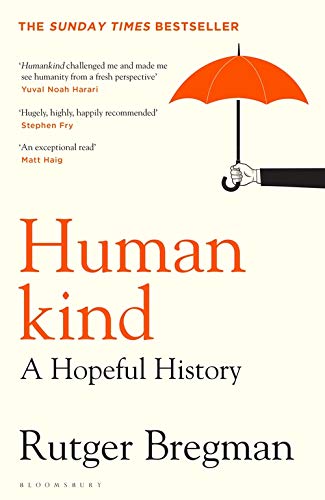
Rutger Bregman is a remarkable historian. His book Utopia for Realists explored the economic history of universal basic income, and how it can be implemented.
His follow-up, Humankind, was a much grander undertaking. This is a massive history book that examines the entire breadth of human culture.
And it does so to prove one simple point: that we, as a species, are kind.
Humankind spends its time exposing lies, debunking myths, and attacking propaganda, proving that we are so much better as a global society than we allow ourselves to think.
This incredible history book examines our evolution, our social dynamics, our economics, our psychology, as well as specific infamous moments in time.
There is so much breadth here, as well as a lot of intimacy and attention to detail. It’s a book full of hope and inspiration, making it one of the best history books you’ll ever read.
Guns, Germs, and Steel by Jared Diamond
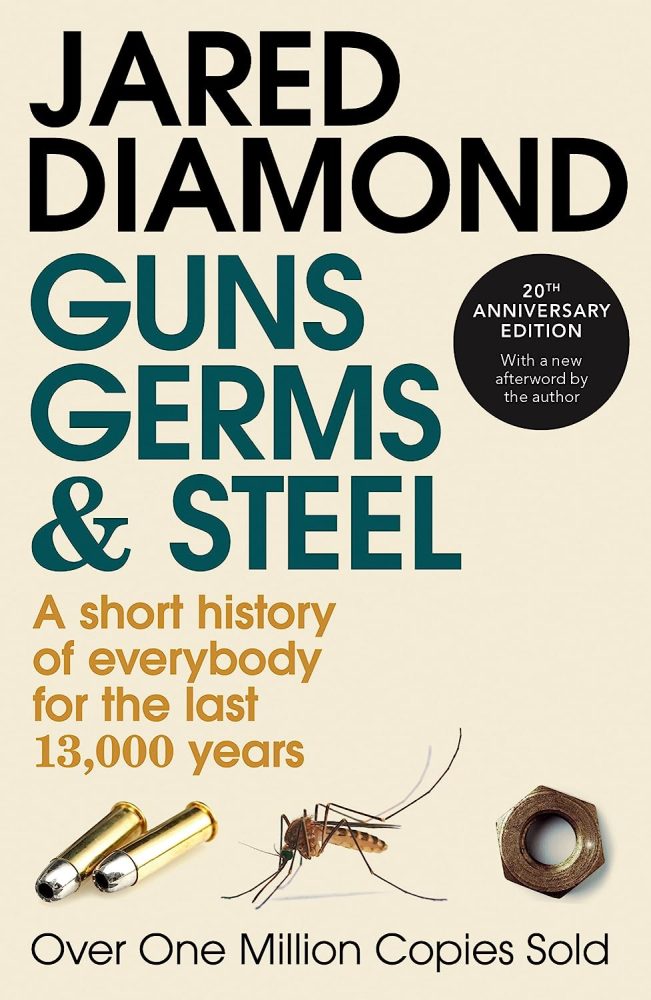
Guns, Germs, and Steel is a legendary history book; one that many consider required reading for understanding how and why the world looks the way it does today.
Jared Diamond’s celebrated history book explores geography, geology, climate, biology, evolution, and more, all to explain the economic dynamics of our planet.
This is a book that explains why the world’s colonialist powers came specifically from Europe, and the answer lies in guns, germs, and steel.
The planet itself — the climate, soil, temperature, and topography of nations and continents — explains away so much of why things happened the way they did.
Guns, Germs, and Steel is a history book about the relationship between our planet’s ecosystem and the cultures, religions, inventions, economies, and industries of nations.
A truly remarkable book that really is required reading, whether you’re a history fan or not. One of the best history books you’ll ever read.
Buy a copy of Guns, Germs, and Steel here!
The Silk Roads by Peter Frankopan
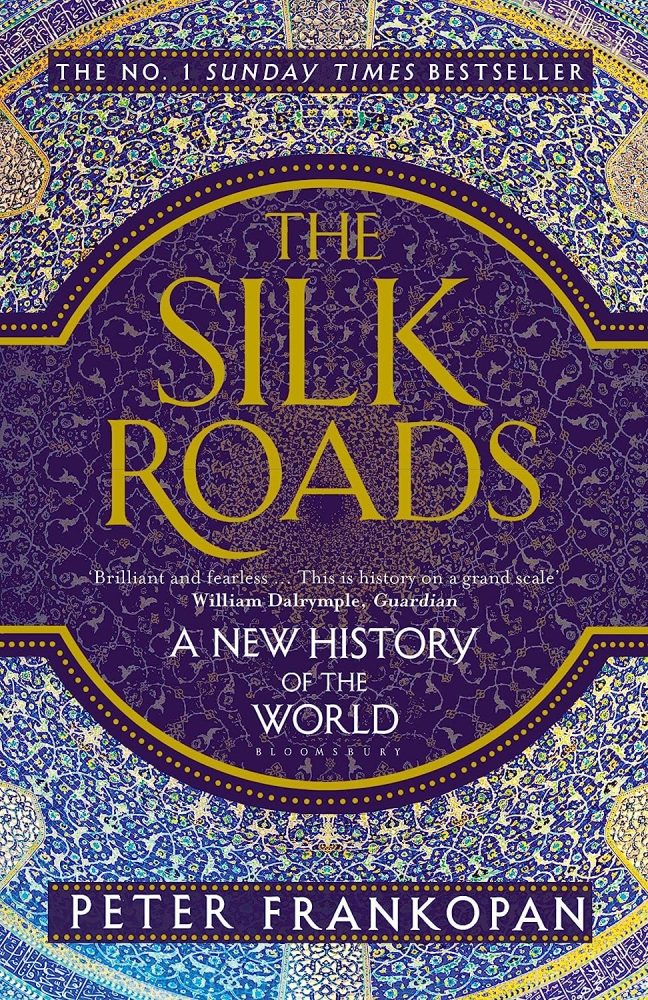
When The Silk Roads was published, it left the jaws of readers and critics on the floor. This was a history book that seemed to have come from nowhere and done something incredible.
Peter Frankopan’s The Silk Roads tells the geological, geographic, economic, industrial, and cultural history of the silk roads.
The silk roads were (and technically still are) a network of roads that spread like veins across Eurasia, from the eastern coast of China to eastern Europe and northern Africa.
These trade routes were necessities for entire civilisations, across centuries of history and development. And this book tells their story.
This is a book about the development of the modern world and how we got here, with a detailed focus on trade and immigration via the silk roads and beyond.
In its first half, the silk roads are the entire focus, but by the halfway point Frankopan turns his attention to empire and the ocean routes that were carved out.
A remarkable book; easily one of the best history books ever written.
Buy a copy of The Silk Roads here!
SPQR by Mary Beard
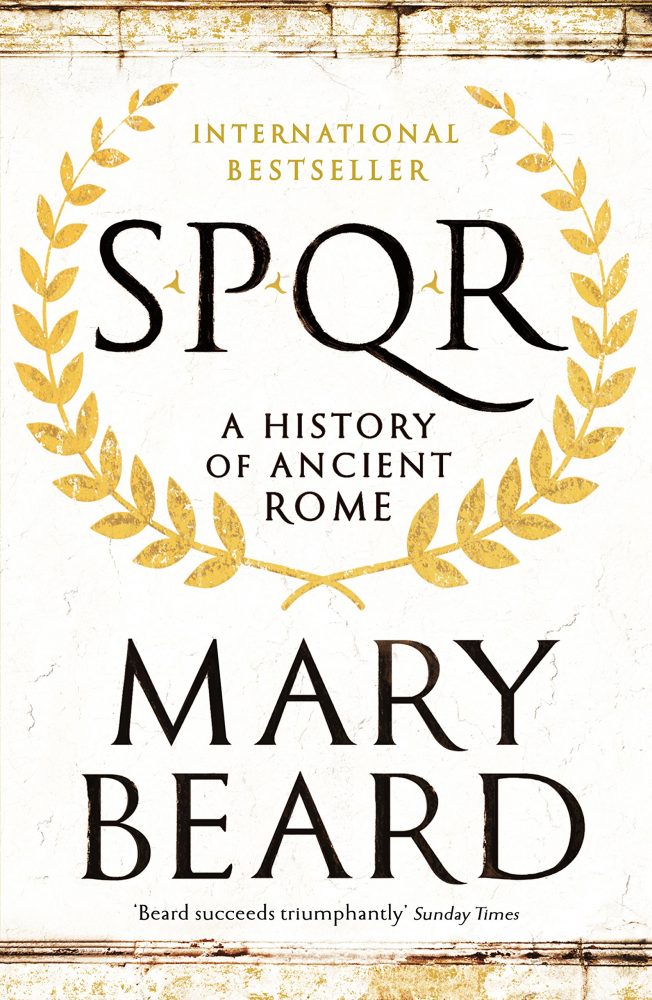
Mary Beard is a national treasure in Britain, a remarkable historian, scholar, and professor; one of the nation’s leading experts in Ancient Roman civilisation.
She has written several books on Rome, but her most celebrated book is easily SPQR: A History of Ancient Rome.
This book is exactly what it says on the tin: the entire history of Ancient Rome in a single book. An enormous undertaking that Beard pulls off flawlessly.
Across 600 pages, Beard takes us on a journey through a millennium of Roman history. Trade, conquest, war, philosophy, invention, religion, tradition, and so much more.
Everything you’ve ever wanted to know about the rise and rise and rise and fall of Rome is covered here, in one of the most engaging and best history books you’ll ever read.
Wild Swans by Jung Chang
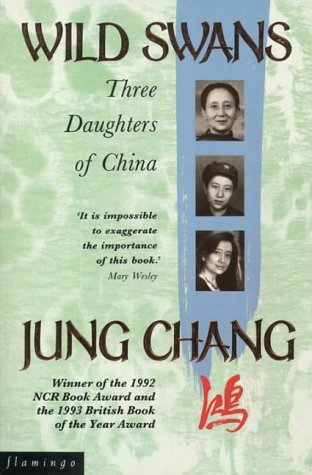
Wild Swans is a remarkable and wholly unique history book. Written as a biography which takes us across three generations of women and the history of Communist China.
In Wild Swans, Jung Chang tells us the personal histories of her grandmother, her mother, and herself.
Each of these women lived through a specific period of 20th century Chinese history, and through their stories we learn about how China rapidly changed across these decades.
Beginning before the revolution, and explaining the traditions and economics of that time, Chang then moves into the revolution.
We learn about the Kuomingtang and Sun Yat-sen, about the rise of Mao Zedong, about the Great Leap Forward, and the Cultural Revolution.
We see how people lived on the ground level, what it was like to fight in that revolution, to survive the famine that came after, to handle the propaganda and torment that ensued.
And we also learn what came after, how China opened its borders in the ‘80s and what happened next.
Blending biography and history, Wild Swans is easily one of the best history books ever written.
Buy a copy of Wild Swans here!
Caliban and the Witch by Silvia Federici
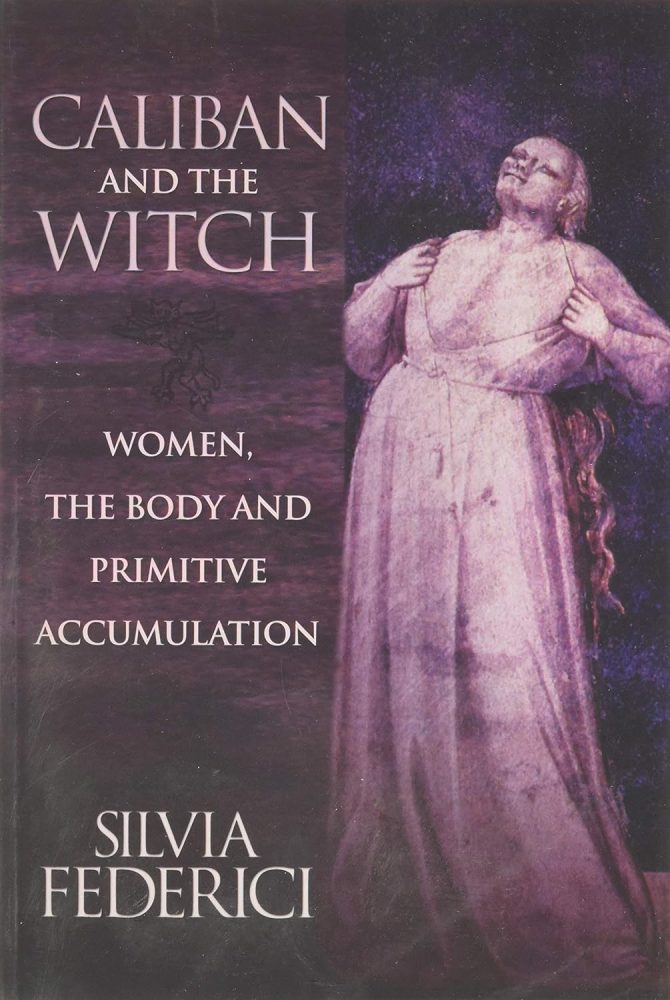
Caliban and the Witch is the kind of history book that will be highlighted, annotated, and dog-eared to the point of being unreadable by the time you turn the final page (my copy certainly is). This nonfiction is a blend of history, sociology, and political philosophy that explores the relationship between the rise of capitalism and the subjugation of the bodies of women and minority people to better serve patriarchal hierarchies in Europe.
Beginning with the established status quo of the feudal system in Western Europe—serfs toiling in service of their lords—Caliban and the Witch teaches us about the peasant revolts and the surprising elements of equality that existed in the Middle Ages, before moving on to the rise of capitalism and how that remodelled the social dynamics between genders, classes, and races.
This is certainly a feminist text, but it is also a work inspired by the writings of Karl Marx; a book that aims to explain the reasons behind the European witch hunts in the Early Modern period, and also to present a clear historical diagram for the relationship between capitalism and patriarchy, and how those in power manipulated religious doctrine, philosophy, and the law to best benefit their consolidation of that power.
Buy a copy of Caliban and the Witch here!
Prisoners of Geography by Tim Marshall
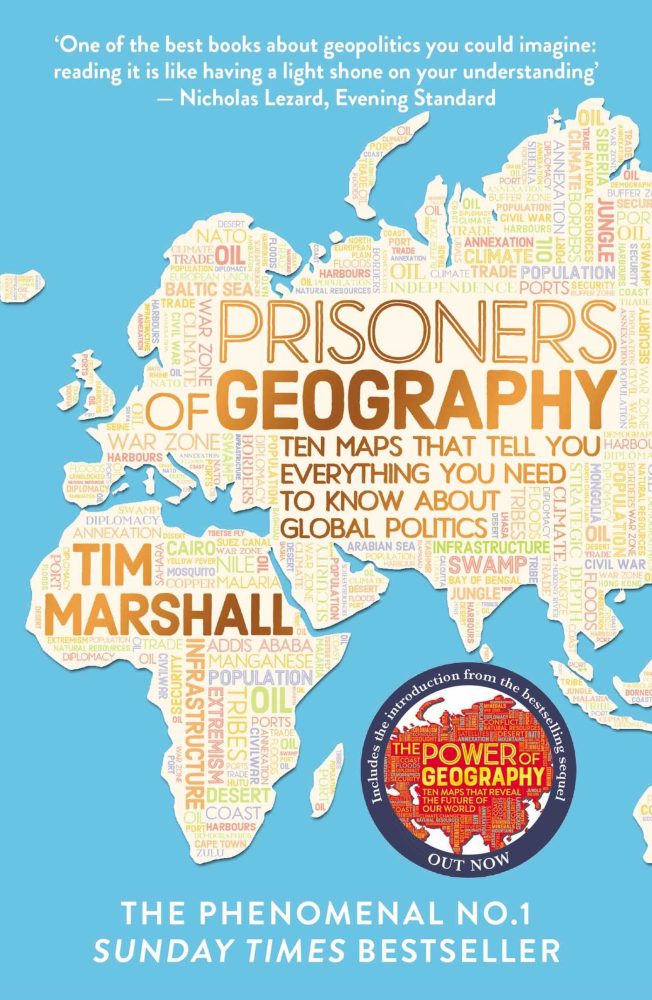
Prisoners of Geography was a well-hyped revelation upon its initial publication, and it has kept that legacy intact ever since. A truly remarkable book about history and geopolitics.
Similar to Guns,Germs, and Steel (above), Prisoners of Geography explores — via ten gripping maps and chapters — how borders and geography have determined how international politics have played out for centuries.
This is a book about the past, but it’s also one about right now and where we might be headed, based on the lines we’ve drawn between one another across the globe.
Examining both the natural and the man-made borders between nations, and how those borders have influenced national and international politics across the map, Marshall breaks down the landscape of geopolitics today.
This is a blend of history, geography, and politics, as so many of the best history books often are, but this is very much a book about the past as a guide towards the future.
Buy a copy of Prisoners of Geography here!
The Language Puzzle by Steven Mithen
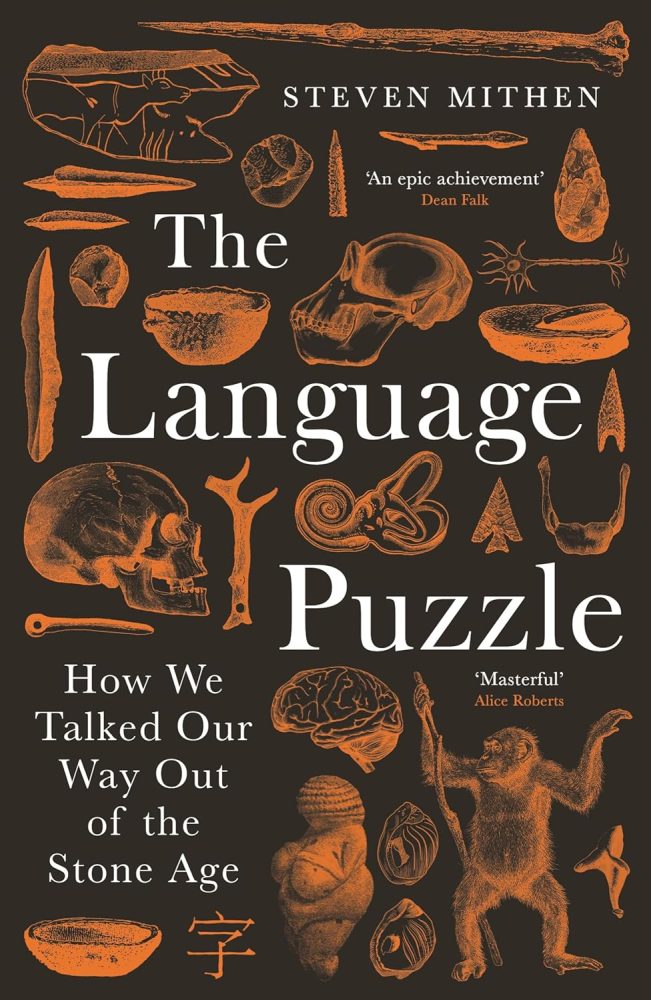
Archaeologist Steven Mithen has blended an incredible range of disciplines—including evolutionary biology, linguistics and etymology—in order to answer the question of how human language developed in The Language Puzzle: How We Talked Our Way Out of the Stone Age. This is a thoroughly well-researched and eye-opening journey across early human history which reveals how language itself evolved.
As you move through this book, you’ll learn about humanity’s evolutionary history, its relationship to other apes, the biology of our speaking and listening organs, the evolution of languages, and so much more. This is the kind of history book that will provide readers with so many fascinating facts about language and history that you’ll want to share with your friends.
The way we see our own history and how we developed as social creatures will change as you read this, as you develop a clearer understanding of how language developed, how its role has changed and shifted, and how the evolution of language has gone hand-in-hand with our development of tools, agriculture, and society itself.
Buy a copy of The Language Puzzle here!
A Brief History of Japan by Jonathan Clements
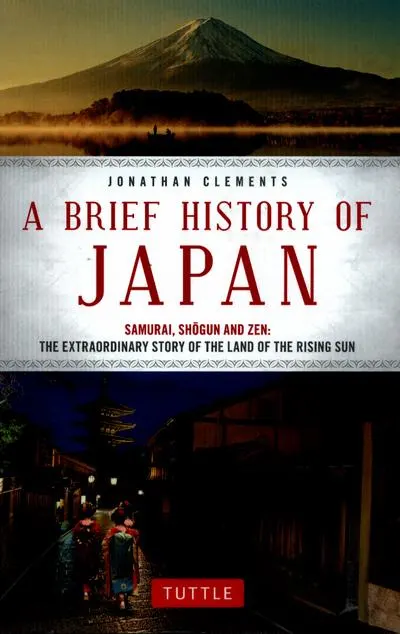
Jonathan Clements is a remarkable historian; an expert in both Chinese and Japanese history who speaks both languages and knows both cultures inside and out.
He has written several books on Chinese and Japanese history, and here he has attempted to condense thousands of years of Japanese history into a single book.
A book that is surprisingly short, easy to follow, nicely linear, and full of information about war, religion, literature, art, tradition, fashion, theatre, economics, and politics.
There is an enormous breadth of information here. If you’re a fan of Japanese history and culture — of shinto, kabuki, ukiyo-e, samurai — you need to read this book.
A Brief History of Japan is also full of charming anecdotes and humour. It gives small insights into the history of specific arts and traditions that are so thoughtful and endearing.
Truly one of the best history books about Japan and its culture.
Buy a copy of A Brief History of Japan here!
The LGBTQ+ History Book
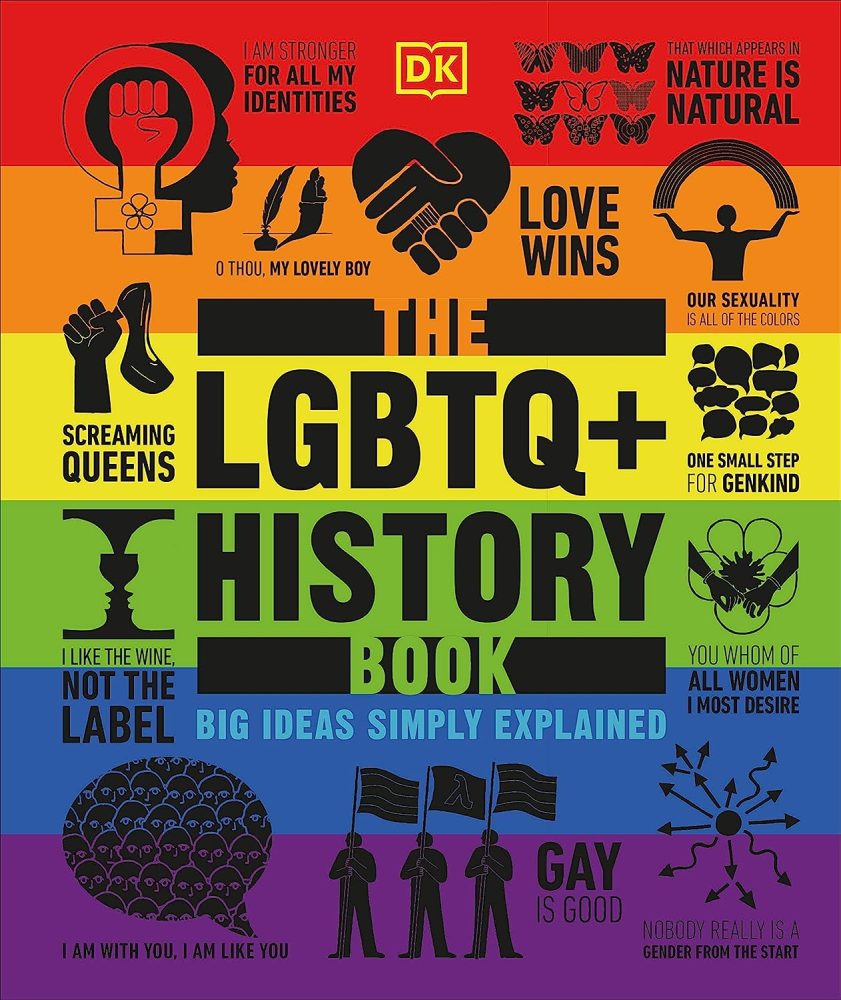
DK is a publishing house, owned by Penguin, that publishes large coffee table books on specific topics, from literature and music to mythology and architecture.
One of the most important, well-researched, and remarkable books they’ve ever published, written by a selection of expert contributors, is The LGBTQ+ History Book.
This is a book that traces the entire history of queer people across the globe. The scope and scale of this history book is staggering.
From the traditions of Maori people and native Americans to the social and political attitudes of Ancient Greeks and Chinese dynasties.
From the rise of Christianity to Section 28, the Lavender Menace, the AIDS crisis, and Stonewall, every corner of queer history is explored here.
Not a single stone is left unturned. By the time you finish this book, you’ll know almost everything about every nation and culture’s queer traditions for the past several millennia.
And all of it is presented in short easy-to-follow chapters full of timelines, statistics, graphs, and anecdotes about specific people from across queer history.
From the Greek heroes Achilles and Patroclus to modern lesbian and transgender philosophers, nobody is left out and no stone is left unturned.
If you want to fully understand the breadth of queer history across the entire planet and across all of human history, you need to read The LGBTQ+ History Book, one of the most important and best history books on the shelves.
(Side note: I narrated the audiobook).
Buy a copy of The LGBTQ+ History Book here!
Black and British by David Olusoga
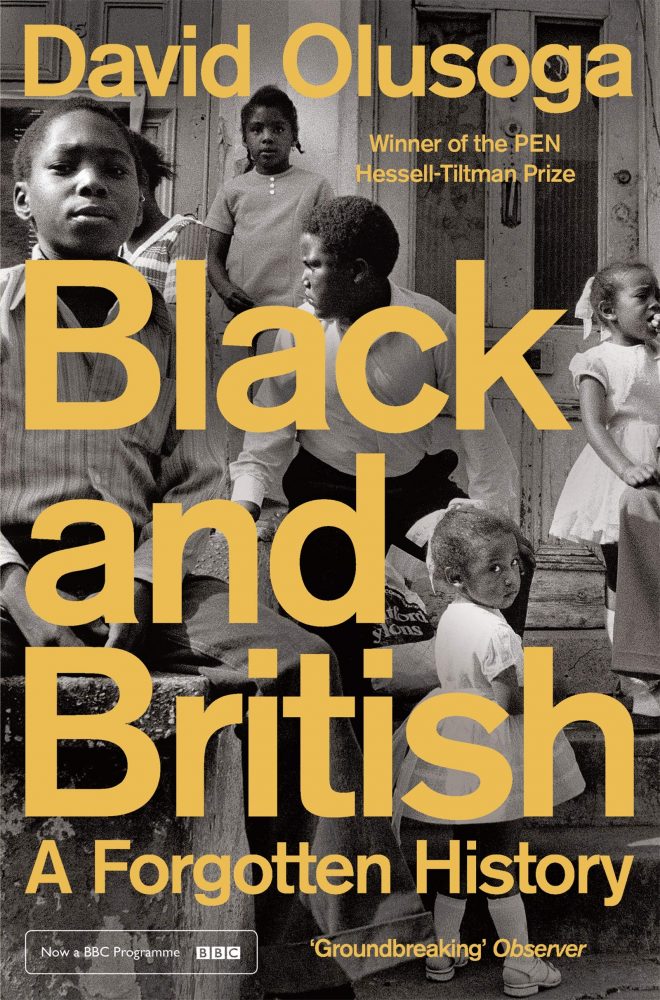
David Olusoga’s book received more than a few awards and accolades upon its publication, including a longlisting for the Orwell Prize.
Black and British: A Forgotten History is a detailed retelling of the relationship between Britain and the people of Africa and the Caribbean.
Black and British is a richly detailed history book that recounts and explores the British Empire’s role in the African slave trade and Britain’s relationship to African and Caribbean people.
It traces Black British history from the pre-Elizabethan Middle Ages, through the colonialist days of the British Empire, to the state of Britain in the 21st century.
This is the history book we should be learning in school and beyond. Every British teenager should come out of secondary school and immediately pick this book up.
Absolutely essential reading for understanding how Britain came to be what it is today, Black and British is one of the most essential and best history books of recent years.
Buy a copy of Black and British here!
Bad Gays: A Homosexual History by Huw Lemmy & Ben Miller
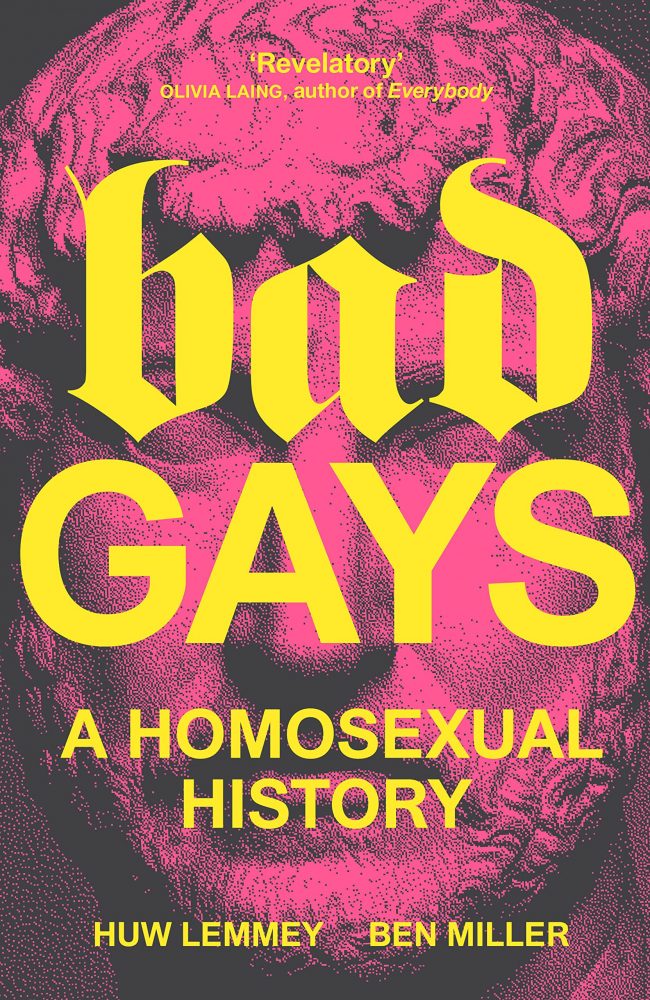
This is one of the most unique, remarkable, and best history books to have been written in the past several years.
Bad Gays is a daring and exciting collection of biographies that detail the lives and exploits of some of history’s worst gay men and women: kings, tyrants, gangsters, fascists, and so much more.
From the Roman leader Hadrian to the British gangster Ronnie Kray via legendary figures like King James I, and Lawrence of Arabia, we take a detailed look at the lives of these awful people, who all happened to be members of the LGBTQ community.
One chapter focusses on the Bad Gays of Weimar Berlin. Another on the fascistic Japanese author Yukio Mishima. These are all strange, complex people who did great and terrible things.
All the while, their sexualities and gender expressions were inexorably tied to who they were and what they did.
This is a history book that humanises queerness, reminding us that we queers are as bad as we are good, because we’re human.
One repeated theme is the definition of homosexuality itself, and the clash between the unacceptable feminine expression of camp men and the acceptable sexual bonds between two burly, manly men.
Bad Gays is a detailed, wonderfully well-researched, hilariously well-expressed history book on the gays that we love to hate throughout history, and how they left their mark on the world.
The Wager by David Grann
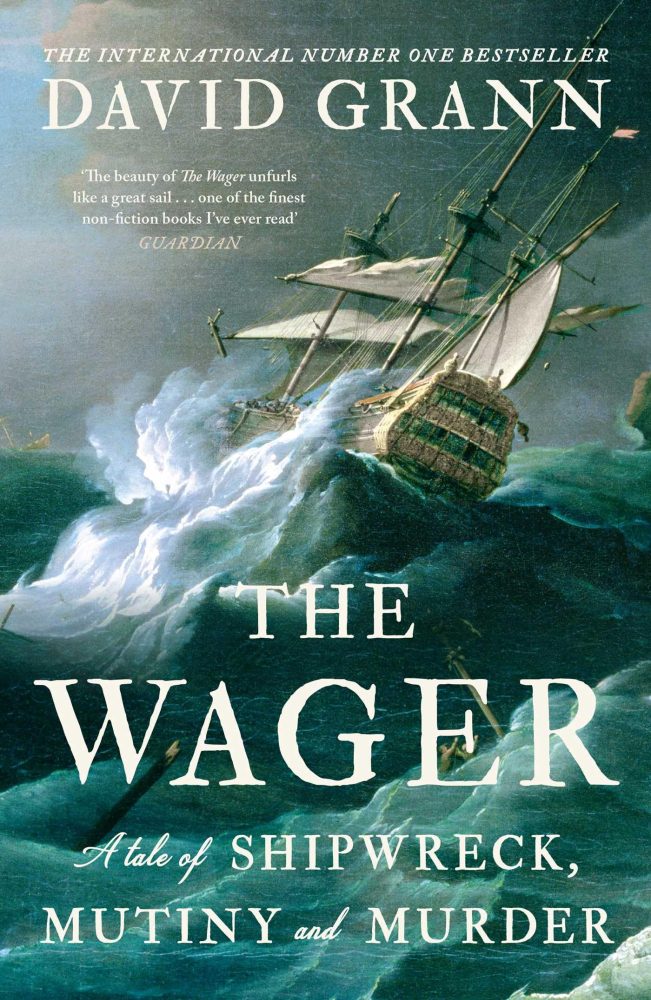
American historian David Grann has made a name for himself in the realms of fiction and nonfiction, with his history book The Lost City of Z receiving critical acclaim and having been adapted into a Hollywood film.
The Wager once again demonstrates his talent at writing impeccably well-researched history with the flair and flourish of a great mystery novel.
This is the story of the titular Wager, a British man-of-war that set sail with a fleet of naval vessels during the war between the British and Spanish empires in 1740.
After a year at sea, the Wager passed through unmanageable and turbulent weather and was wrecked on the shores of an uninhabited and inhospitable island off the southwest coast of Chile.
David Grann tells the story of that voyage, the shipwreck, and the murders and mutiny that followed. Grann paints a luscious but uncomfortably picture of desperation, starvation, and aggression.
One of the souls that was wrecked and involved in the mutiny was the grandfather of legendary poet Lord Byron, and it was his grandfather’s experiences here that inspired several of Byron’s best works.
The experiences that these castaways went through were harrowing, and Grann captures it all in immense detail and with the excitement of a good novel. Easily one of the best history books of recent years.
Sapiens by Yuval Noah Harari
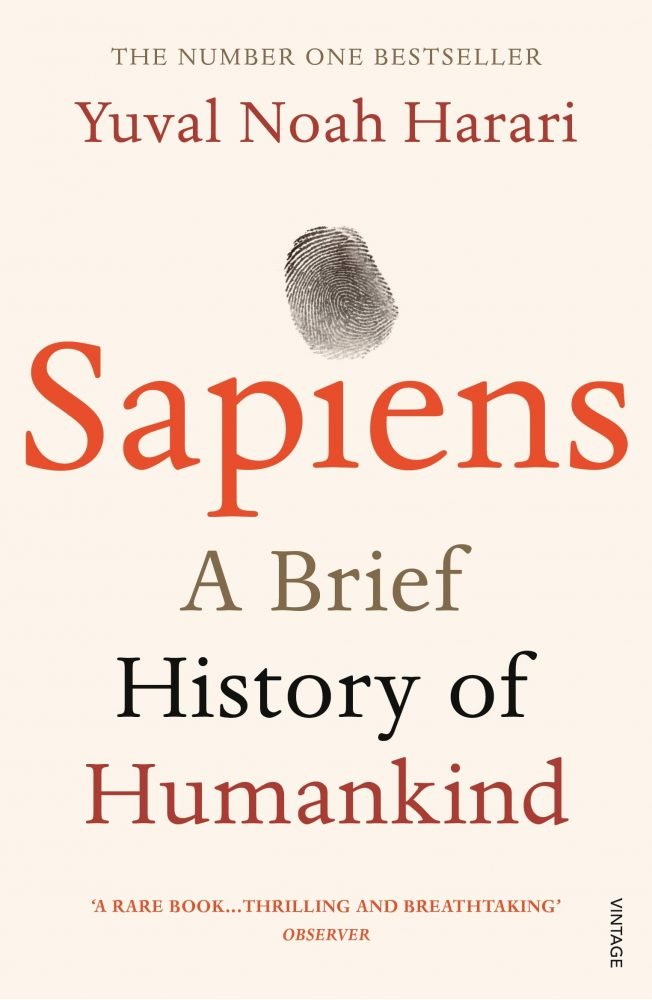
It’s almost impossible, and arguably unfair, to discuss the best history books of all time without mentioning Sapiens.
This is a history book that popularised history books, had readers and non-readers alike suddenly desperate for more great works of nonfiction.
A captivating, engrossing, almost hypnotic book, Yuval Noah Harari’s Sapiens skyrocketed him into stardom within the historian community.
Sapiens is a book about the entire history of mankind; no small thing.
What sets it apart from other books which have set out to do something similar is the way in which its author injects so much easy-to-follow philosophy and psychology into its narrative.
And narrative feels like the right word, as this book flows with the energy of a captivating novel.
From the history of the written word to the agricultural revolution and beyond, Sapiens is a staggering work of nonfiction that took the world by storm, and rightly so.
Femina by Janina Ramirez
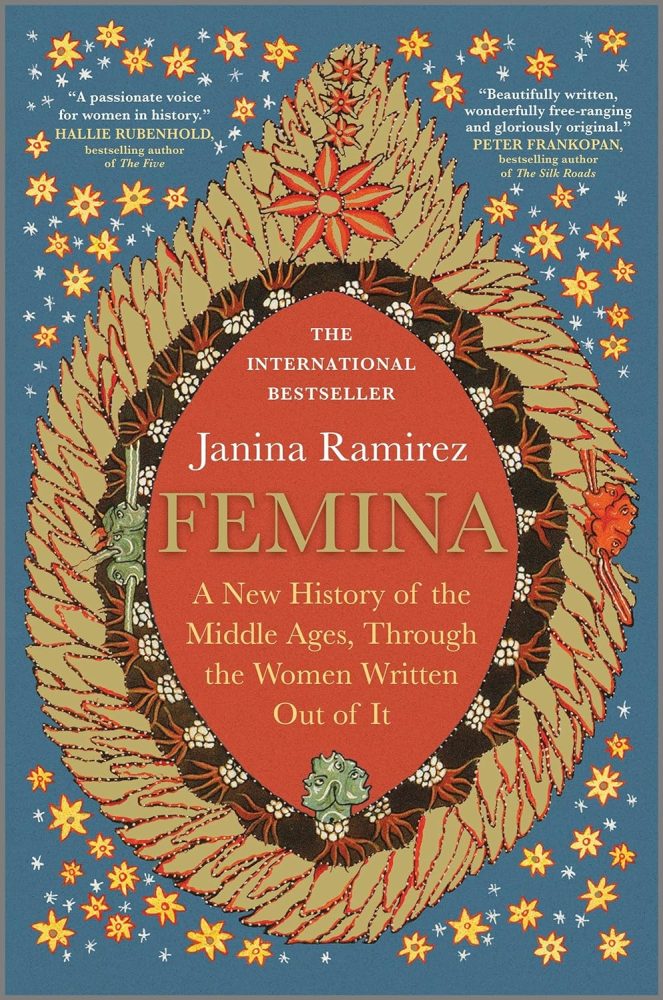
Femina: A New History of the Middle Ages, Through the Women Written Out of It is a lengthy title, but it perfectly sums up the entire book. The European Middle Ages lasted for a millennium, from the fifth to the fifteenth century, and the history we often learn about that enormous span of time usually ignores the successes and contributions of women. This book explores and outright celebrates the female artists, scientists, leaders, and warriors of the Middle Ages.
Across nine chapters, we move forward a century at a time, and each time we also refocus on a different kind of woman: from religious and political leaders to warriors, artists, philosophers, scientists, theologians, and beyond. Not only that, but we also shift our focus to different nations—from England to Sweden, France, and Germany—all the while dispelling irritating propaganda about entire religions and cultures; most notably the Vikings.
Femina doesn’t just teach us about the many incredible warrior women, polymaths, and painters of the Middle Ages. It also reframes that entire period as something far more culturally, theologically, and ethnically diverse than what we are so often led to believe. This is a true reframing of the Middle Ages and a vitally important history book.
The Ruin of All Witches by Malcolm Gaskill
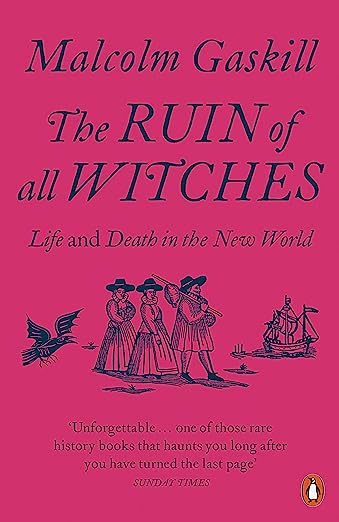
Author and professor Malcolm Gaskill is considered one of Britain’s leading experts in the history of witches and witchcraft, and here he turns his knowledge and research skills to the history of a specific time and place.
The Ruin of All Witches: Life and Death in the New World is a historical account — a piece of nonfiction written with the fluidity and narrative heft of a novel — about a small New England town in the 1600s.
That town is Springfield, Connecticut; a remote town one hundred miles from Boston, MA.
We begin near the end, with the town of Springfield flooded with paranoia; residents are having dreams and fits. And a Welsh woman named Mary has been arrested for witchcraft.
Gaskill then returns us to the beginning, painting us a detailed picture of the town, its founder (William Pynchon) and its residents.
This is the story of an ordinary town of God-fearing Christians, English and Welsh colonisers who have set down roots in a small corner of New England.
It’s also the story of the first cases of alleged witchcraft in the New World. Until this moment, witch hunts and trials had been left behind, in Europe, but this is where and when they began in the USA.
Several years before the infamous Salem Witch Trials, there was the story of Mary Parsons and her husband. The Ruin of All Witches is a masterwork of history writing and one of the most unique and best history books of recent years.
Buy a copy of The Ruin of All Witches here!
The Mother Tongue by Bill Bryson
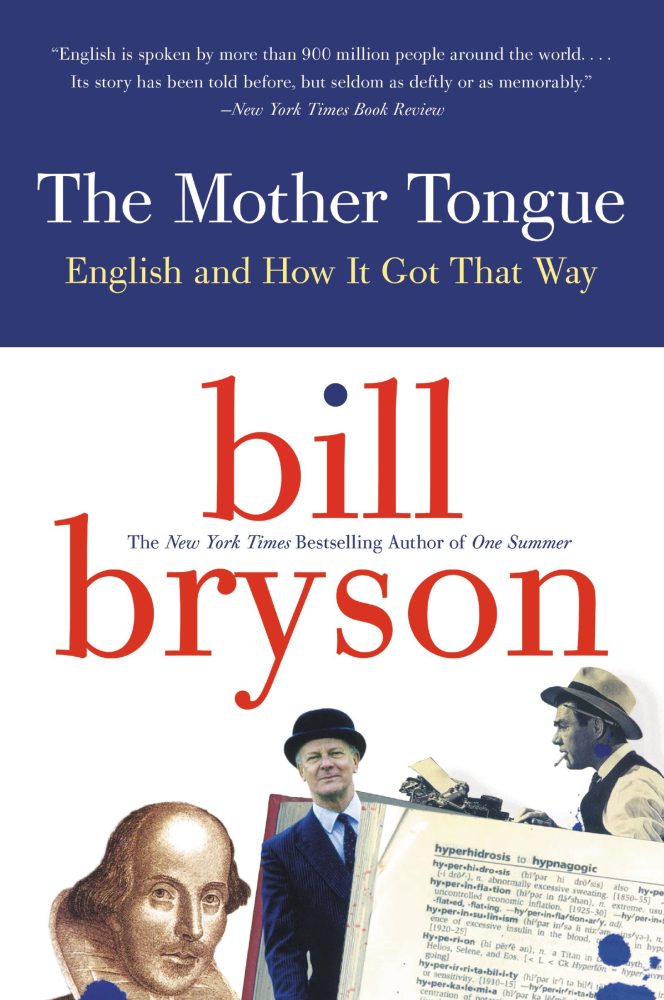
Bill Bryson has written memoirs, books on travel, as well as books on science and literature. With The Mother Tongue, he turns his focus to the history of the English language.
For fans of the linguistic side of history, this is an exceptionally captivating book that delves into the origins of the English language, as well as its various accents and dialects, its global spread, and many etymological details.
It’s impossible not to walk away from this book with so many charming facts and details about the English language in your head (like how it is the language with the second-largest number of unique sounds, after German).
The Mother Tongue provides readers with all the historical, geographical, and political details that they need to build a fully-formed map of the English language and how has become what it is today.
One of the most unique and best history books about a specific topic that you’re ever likely to read.
I have my issues with Bill Bryson, but some of his books really do shine and captivate. And The Mother Tongue is the one that has captivated me the most, as someone with a love for etymology and the history of languages.
Buy a copy of The Mother Tongue here!
Shakespeare by Bill Bryson
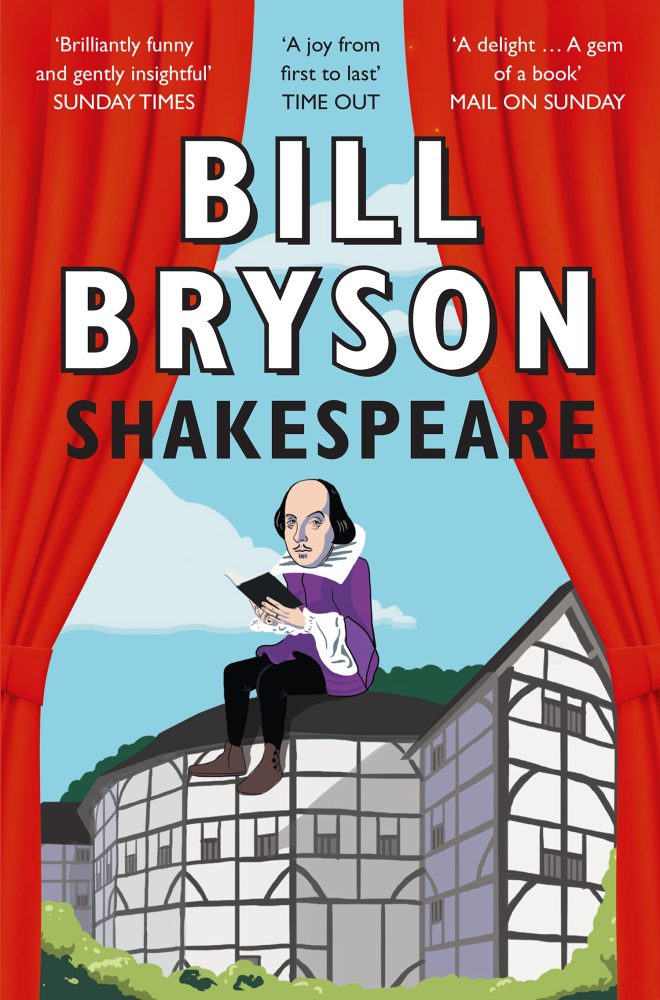
As already mentioned (above), Bill Bryson is a huge figure in the world of nonfiction and history books. A writer of wit and savvy who has turned his attention to an array of interesting topics.
One such topic is The Bard himself. While there have been several history books about the Elizabethan period in which he lives, and biographies on Shakespeare himself, Bryson’s history book remains unique.
This short book was clearly written from the heart, by someone with a passion for what The Bard accomplished with his life, and for a legacy that hasn’t diminished in five hundred years.
Rather than being an in-depth biography, this is a history book that debunks the myths, lies, and conspiracies surrounding Shakespeare and his world.
Shakespeare sets the record straight on how Shakespeare lived and worked, the Elizabethan world in which he flourished as an actor and a playwright, and how he was inspired to write his plays and sonnets.
This book dives into Shakespeare’s youth in Stratford and his London career. It explains how he studied and learned, and what inspiration he gleaned from myths, history, and the world around him.
A brilliantly witty book written in Bryson’s now-iconic style, and one of the best history books for fans of art, theatre, and the Elizabethan world.
Buy a copy of Shakespeare here!
Normandy ’44 by James Holland
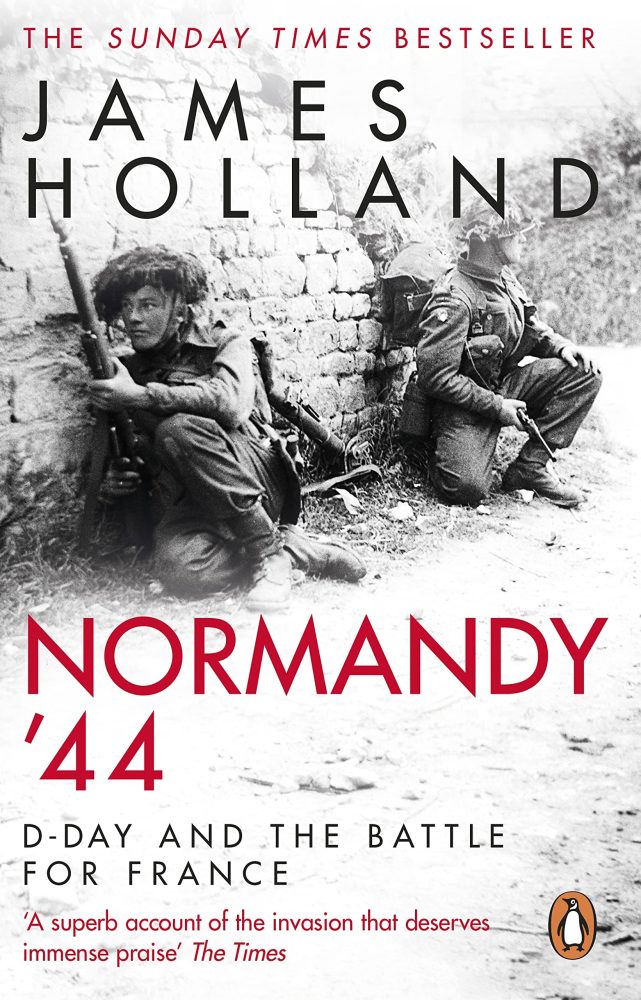
Author and broadcaster James Holland is widely regarded as one of the great British World War II historians, and he also happens to be the brother of Tom Holland (not that one), an expert on Roman and Islamic history.
Normandy ’44 is well-considered to be Holland’s greatest achievement as an historian, and one of the best World War II history books we have.
When it comes to the world wars, fiction and nonfiction play vitally different roles, and there is a weighty significance put on history being told accurately when it comes to these modern wars.
When it comes to D-Day and the battle for France, Holland tells this story with confidence, bolstered by a fantastic amount of research. There is a tense vividness to his telling in this history book.
This period of WWII has been explored numerous times, and also been put to page and screen in a fictional capacity, but the facts are laid out here in Normandy ’44 with honesty and transparency.
This is the definitive story of the Normandy Campaign. Fans of war history owe it to themselves to read this; one of the best history books about World War II you’ll ever read.
Buy a copy of Normandy ’44 here!
Persian Fire by Tom Holland
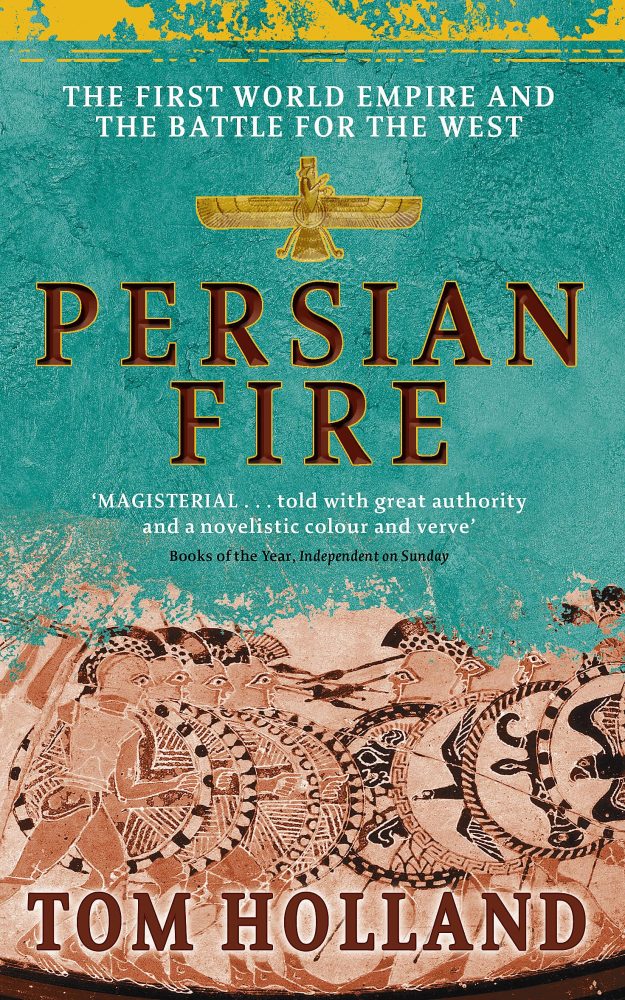
From one Holland to another. Tom Holland (not that one) has proven himself an authority figure on classical and medieval history, and here he turns to the Greco-Persian Wars of the 5th Century BCE.
While Holland has written several books on Roman history, that topic has been covered by Mary Beard and SPQR (above), while Persian history is too often overlooked by historians and academics.
Thankfully, Holland does the topic justice, and then some, with Persian Fire.
He begins by establishing the cultures, traditions, and laws of the Persian Empire and the disparate city-states that made up the islands of Greece.
The Greeks famously invented the concept of democracy, but that is a much dirtier and more complex fact than a simple titbit, and Holland elaborates on it here, while also establishing how the Persians vastly differed in culture.
The majority of this book, however, is a dramatisation of the wars between the Persians and the states of Athens and Sparta, who led them, how they played out, and what the lasting impact of these wars was.
This is a concise, clear, and addictively readable book; one of the best history books we have about the ancient world and its wars.
Buy a copy of Persian Fire here!
River Kings by Cat Jarman
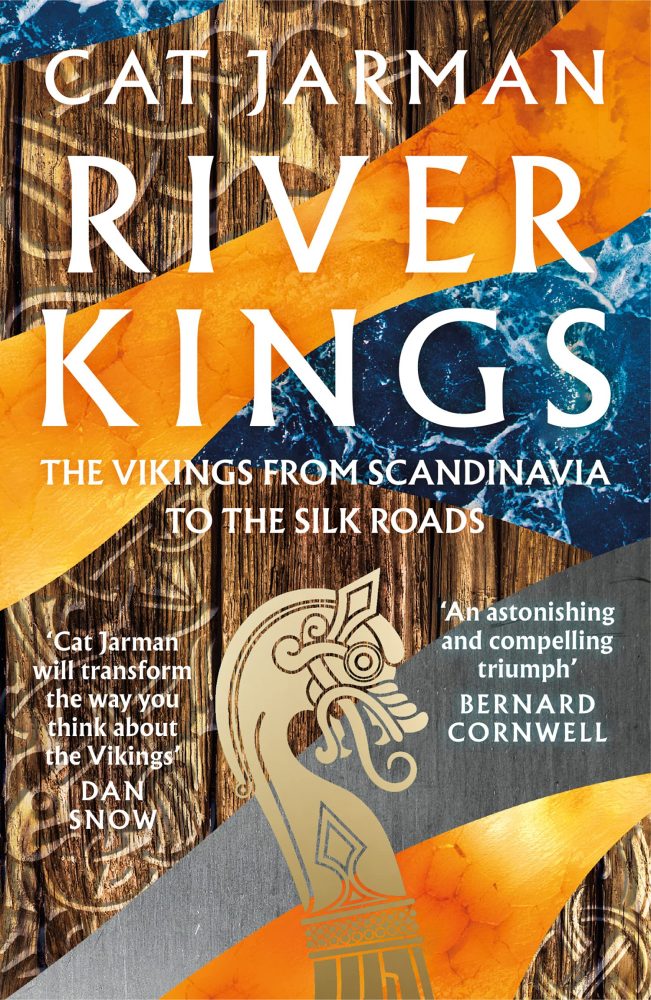
Historians have a variety of different beginnings. Some have backgrounds in academia, others in science. Dr Cat Jarman is a bioarchaeologist, specialising in using forensics to build a story.
Her talents are many and very impressive, and she has done remarkable things with her skills and her knowledge. That is all evident in this remarkable history book on the vikings.
With the right technology at her fingertips, Jarman has been able to write a history of the vikings that is so much clearer, and yet more complex, than any which have come before.
As the book’s subtitle makes clear, the journey Jarman takes us on spreads far beyond Scandinavia, and reveals that the vikings travelled farther, and much more complex routes, than we ever could have thought until now.
All of this began with a bead which found its way into Jarman’s hands. A viking bead that was somehow made in India. And so a viking journey across the silk roads unfolds.
This is a remarkable, award-winning book, and one of the best history books of the past several years.
Buy a copy of River Kings here!
Histories of Nations by Peter Furtado (Editor)
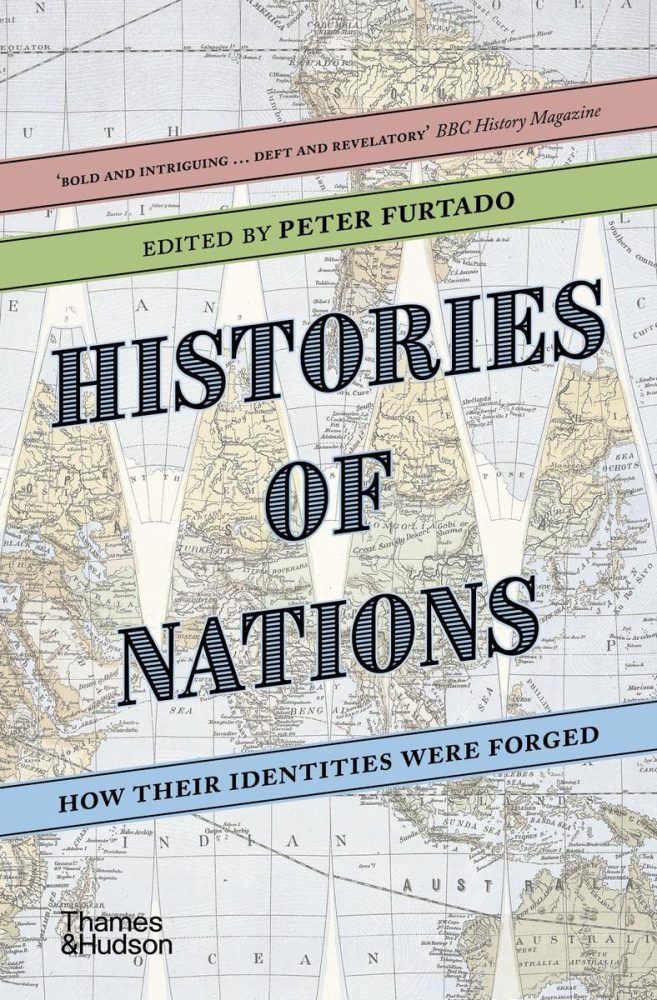
This is an ambitious history book that deserves credit for simply existing. Edited by author and historian Peter Furtado, Histories of Nations is a collection of essays by historians from around the world.
Each writer featured in this history book is an expert in the history of their own nation, and presents us with an intimate, personal insight into their home country.
These essays, woven together, create a tapestry of political and cultural histories from the native children of twenty-eight different countries from around the globe.
It’s a wonderful project, full of dynamism and variety, as each historian is tasked with summarising the history of their homeland in an essay that will have something valuable to teach people from everywhere else.
The knowledge that can be gleaned from this world history book cannot be understated, and that makes it one of the best history books of recent times.
Buy a copy of Histories of Nations here!
A Brief History of Time by Stephen Hawking
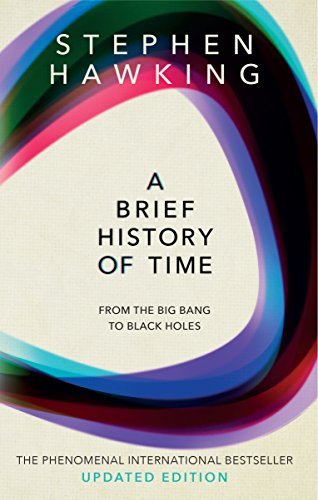
Like Yuval Noah Harari’s Sapiens (above), Stephen Hawking’s A Brief History of Time was a game-changer within the world of history, science, and nonfiction in general.
Stephen Hawking was one of the great minds of his time, a theoretical physicist, author, and professor who changed the landscape of his field, and became an icon in the process.
A Brief History of Time is a book on cosmology, one that blends history and science to teach us about the formation of the universe and all that it contains.
With its wonderfully witty title, A Brief History of Time is beloved by so many for its wide-eyed approach to the cosmos, and for its easy-to-follow narrative.
This is a book designed to inspire wonder at the birth and expansion of reality itself. A truly remarkable, one-of-a-kind science and history book.
Buy a copy of A Brief History of Time here!
Pandora’s Jar by Natalie Haynes
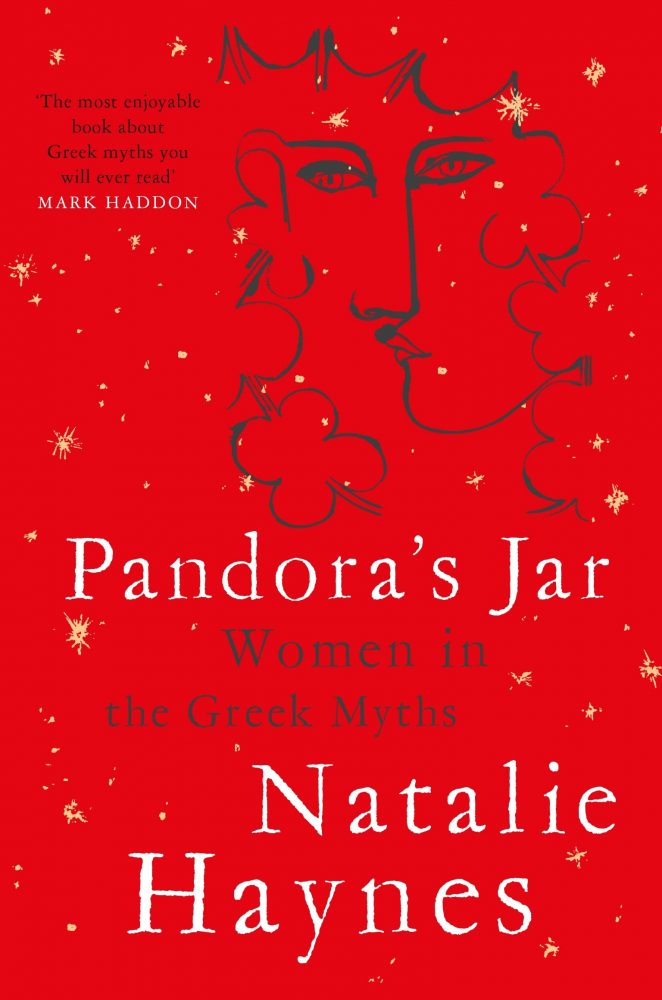
Natalie Haynes saw huge success with her fractured novel A Thousand Ships, and rightly so. This led to the successful publication of a more traditional compendium style of book: Pandora’s Jar.
Much like Charlotte Higgins’ Greek Myths, Natalie Haynes’ Pandora’s Jar is a history book about Greek Mythology.
But where it differs from many of its contemporaries is in the fact that Pandora’s Jar puts the focus on the women of Greek mythology.
As the tales of heroes got retold again and again, the women were left by the wayside. This has been rectified in recent years by the many wonderful retellings by women writers.
The chauvinistic, and sickeningly patriarchal approach to Greek mythology is historically unfair.
And so, with that fact in mind, Haynes fixes it by reminding us of the great tales of Greek myth that focus on its women, beginning with the titular Pandora.
Fans of history are often also fans of mythology, and for those fans Pandora’s Jar is essential reading.
Buy a copy of Pandora’s Jar here!
The Plantagenets by Dan Jones
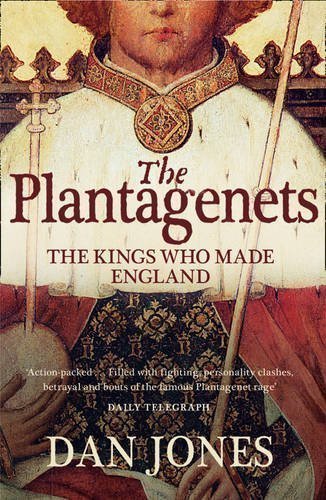
Dan Jones is one of the UK’s most celebrated historians, not only for his knowledge and perspective, but also for his ability to write nonfiction as though it were fiction.
Jones’ love for the subjects which he covers comes through in his style and his structure, writing electrifying narratives about British history that shock and entertain.
The best example of this is The Plantagenets, a 600-page book about (as its subtitle makes clear) the kings and queens who made England.
With their origins in France, the Plantagenet family held control of England for three hundred years, from the 12th century until the death of Richard III.
This is a remarkable and action-packed history book that traces the entire lineage of the Plantagenet family, and the ways in which they moulded and transformed England.
Jones has written several of the best history books on British history, and The Plantagenets is the perfect place to start reading his excellent bibliography.
Buy a copy of The Plantagenets here!
The Selfish Gene by Richard Dawkins
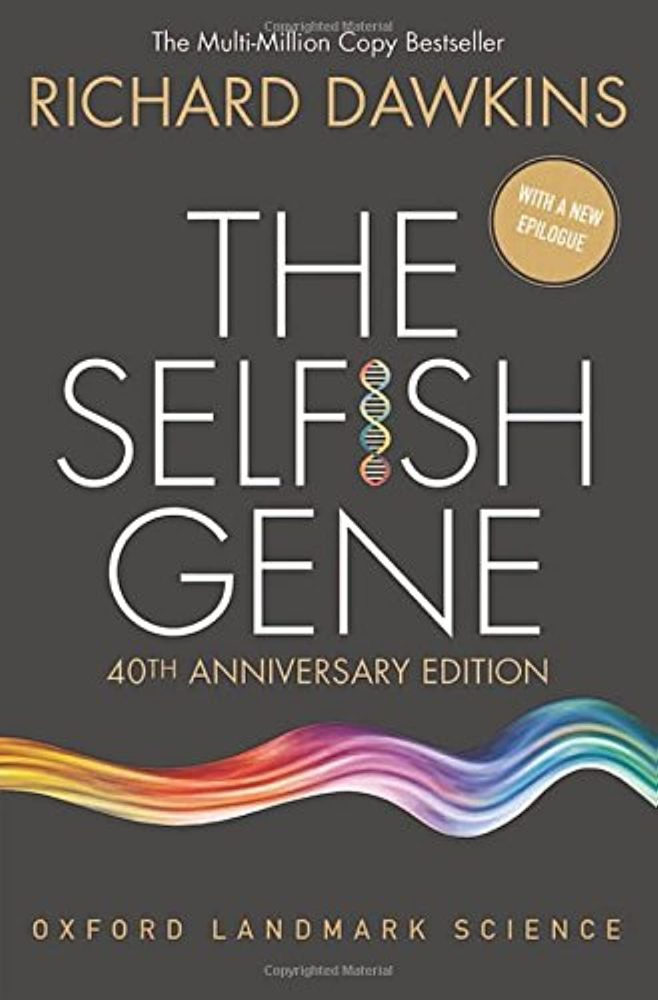
Richard Dawkins is something of a controversial figure; ironically deified by atheists the world over, and scorned by people who make their religion their personality.
But if we put his status as a public figure aside, we are left with a great mind within the world of evolutionary biology.
And that mind was first put to work on writing The Selfish Gene. Despite being his first book, The selfish Gene remains a pivotal work of biological history.
Put simply, this is a book about evolution. While it is undeniably a science book, it is also one that explores how we — humans — got here. How we came to evolve in the way we did.
Written with fluid prose and a lack of ego, The Selfish Gene is easy to follow and helps put into perspective the growth of all living things. A remarkable book.
Buy a copy of The Selfish Gene here!
Man’s Search for Meaning by Viktor Frankl
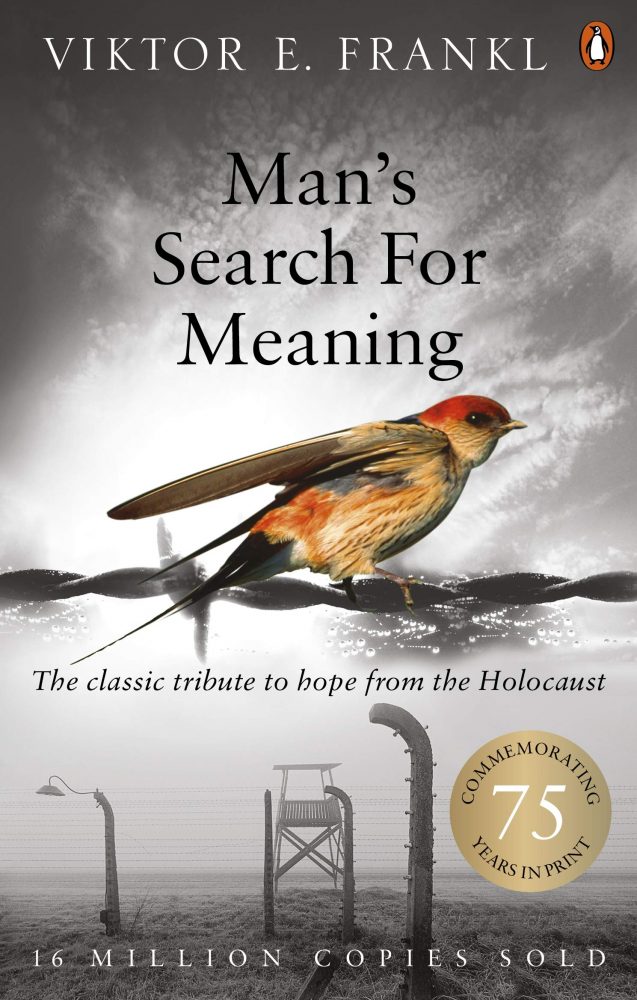
Written in 1946, after the end of World War II, Man’s Search for Meaning is separated into two halves. The first half is a biography of Frankl’s time as a concentration camp prisoner.
That first half uses its setting and experiences to examine how people find meaning in their suffering and devise a purpose for living. How do they cope? How do they make sense of their situation? How do they find meaning in their life?
In the book’s second half, Frankl lays out his own psychological invention: logotherapy, which was inspired by the events of the book’s first half. Logotherapy encourages people to find meaning in their suffering, in order to better cope with it.
Man’s Search for Meaning is a remarkable book that blends biography, history, psychology, sociology, and self-help to create something vital and wholly unique.


